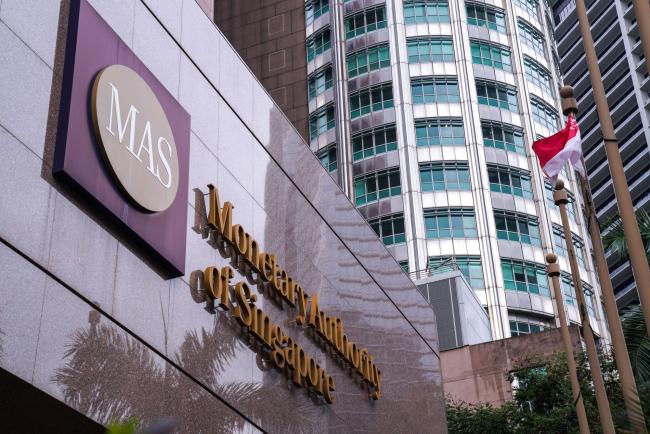(Bloomberg) -- Follow Bloomberg on LINE messenger for all the business news and analysis you need.
Singapore has received “strong interest” in its effort to open up the banking industry to fresh competition after 21 groups made bids for digital licenses, the financial regulator said.
A “diverse group” lodged applications, including e-commerce, technology and telecommunications companies, the Monetary Authority of Singapore said in a statement on Tuesday, without identifying the parties. Seven were for digital full bank licenses, and 14 were for wholesale permits, it said.
Singapore is attractive to new players because once they get a foothold there they can demonstrate a proven track record to other regulators in Southeast Asia when those markets open up to digital banks, according to Varun Mittal, an associate partner with the consultancy firm EY in Singapore.
Southeast Asia’s digital lending market is expected to more than quadruple to $110 billion by 2025, according to a report by Bain & Co., Google (NASDAQ:GOOGL) and Temasek Holdings Pte. In neighboring Malaysia, the central bank said last month that it has drafted a licensing framework for digital banks.
The MAS said in June it plans to issue as many as five new digital bank licenses to non-banks to strengthen competition in financial services. The U.K. and Hong Kong are among major economies that have already issued similar permits, creating a new generation of rivals for traditional lenders.
Applications were due at the end of last year. The MAS will announce the results in June 2020, and successful groups are expected to start business by mid-2021. Several firms -- including Grab Holdings Inc., Razer Inc. and Jack Ma’s Ant Financial -- have announced bids in recent days.
The number of interested parties is high given the limited availability of the Singapore permits, Mittal said, comparing the numbers to Hong Kong, where 29 groups applied for eight licenses given last year.
Read how Singapore digital bank wannabes must show profitability
Still, the challenge for new entrants will be demonstrating profitability over the long run, according to Mittal.
“One key think to note is long-term sustainability and viability of new digital banks since globally a large proportion of them have yet to become profitable,” he said. “In the event of an economic downturn, new digital banks could face operational challenges.”
The full digital banks will require total capital of S$1.5 billion ($1.1 billion) and must be controlled by Singaporeans. They will be allowed to provide a range of financial services as well as take deposits from retail customers. The MAS plans to award up to two such licenses.
There are up to three digital wholesale permits on offer, limited to corporate clients and requiring a minimum S$100 million of capital. They are open to both local and foreign applicants.
(Updates with comment from analyst in fifth paragraph)
